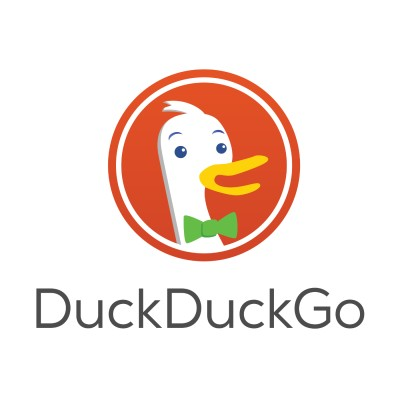DuckDuckGo's AI Chat: Balancing Privacy and Accuracy in AI Interaction
June 12, 2024, 3:46 pm

Location: United States, Pennsylvania, Paoli
Employees: 51-200
Founded date: 2008
Total raised: $10M

Location: United States, California, San Francisco
Employees: 201-500
Founded date: 2015
Total raised: $11.57B
DuckDuckGo, a renowned privacy-focused browser, has recently unveiled a groundbreaking AI Chat service that allows users to engage with four mid-range large language models (LLMs) from leading providers such as OpenAI, Anthropic, Meta, and Mistral. This innovative service enables users to interact with AI chatbots without the need to disclose personal information or create an account, ensuring anonymity and data privacy.
The AI Chat service offered by DuckDuckGo presents a unique opportunity for users to explore the capabilities of different AI models, including OpenAI's GPT-3.5 Turbo, Anthropic's Claude 3 Haiku, Meta's Llama 3, and Mistral's Mixtral 8x7B. By providing access to these diverse AI models, DuckDuckGo aims to offer users a seamless and convenient way to engage with AI technology without the hassle of installation or registration.
One of the key highlights of DuckDuckGo's AI Chat service is its emphasis on privacy and data protection. All chats conducted on the platform are anonymized, with metadata and IP addresses removed to safeguard user identity. DuckDuckGo assures users that their inputs are not used for AI model training, in alignment with their strict privacy policy. However, it is important to note that certain AI models, such as GPT-3.5 and Claude Haiku, may require sending user inputs to remote servers for processing, potentially posing privacy risks in extreme scenarios.
While DuckDuckGo's AI Chat service offers a seamless and user-friendly experience, questions arise regarding the accuracy and reliability of the AI models involved. GPT-3.5, despite its initial impressiveness, has been known to produce inaccurate information, raising concerns about the utility of the service for critical tasks. The absence of more advanced models like GPT-4, Claude Opus, or Google's Gemini Ultra may limit the service's effectiveness in delivering accurate responses to user queries.
DuckDuckGo hints at future plans to introduce paid options that may include access to advanced AI models and higher usage limits, addressing some of the current limitations of the service. The company acknowledges the trade-off between privacy and accuracy in AI interaction, urging users to verify information from reliable sources, especially in professional domains like medical, financial, or legal advice.
In conclusion, DuckDuckGo's AI Chat service represents a significant advancement in integrating privacy-focused AI technology into everyday use. While the service offers a compelling blend of privacy and AI interaction, challenges remain in ensuring the accuracy and reliability of AI models. Users are encouraged to approach AI chatbots with caution, verifying information from alternative sources to mitigate the risks of misinformation. DuckDuckGo's AI Chat service stands as a testament to the evolving landscape of AI technology, where privacy and accuracy are crucial considerations in enhancing user experience and trust.
The AI Chat service offered by DuckDuckGo presents a unique opportunity for users to explore the capabilities of different AI models, including OpenAI's GPT-3.5 Turbo, Anthropic's Claude 3 Haiku, Meta's Llama 3, and Mistral's Mixtral 8x7B. By providing access to these diverse AI models, DuckDuckGo aims to offer users a seamless and convenient way to engage with AI technology without the hassle of installation or registration.
One of the key highlights of DuckDuckGo's AI Chat service is its emphasis on privacy and data protection. All chats conducted on the platform are anonymized, with metadata and IP addresses removed to safeguard user identity. DuckDuckGo assures users that their inputs are not used for AI model training, in alignment with their strict privacy policy. However, it is important to note that certain AI models, such as GPT-3.5 and Claude Haiku, may require sending user inputs to remote servers for processing, potentially posing privacy risks in extreme scenarios.
While DuckDuckGo's AI Chat service offers a seamless and user-friendly experience, questions arise regarding the accuracy and reliability of the AI models involved. GPT-3.5, despite its initial impressiveness, has been known to produce inaccurate information, raising concerns about the utility of the service for critical tasks. The absence of more advanced models like GPT-4, Claude Opus, or Google's Gemini Ultra may limit the service's effectiveness in delivering accurate responses to user queries.
DuckDuckGo hints at future plans to introduce paid options that may include access to advanced AI models and higher usage limits, addressing some of the current limitations of the service. The company acknowledges the trade-off between privacy and accuracy in AI interaction, urging users to verify information from reliable sources, especially in professional domains like medical, financial, or legal advice.
In conclusion, DuckDuckGo's AI Chat service represents a significant advancement in integrating privacy-focused AI technology into everyday use. While the service offers a compelling blend of privacy and AI interaction, challenges remain in ensuring the accuracy and reliability of AI models. Users are encouraged to approach AI chatbots with caution, verifying information from alternative sources to mitigate the risks of misinformation. DuckDuckGo's AI Chat service stands as a testament to the evolving landscape of AI technology, where privacy and accuracy are crucial considerations in enhancing user experience and trust.
